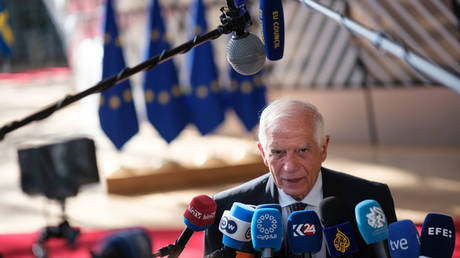When Our Leaders Get Mud on Their Trousers

Arnold Rothstein (image from The Mob Museum)
3,401 words
Arnold Rothstein is one of the most prominent figures in the history of organized crime in the United States. Born to a Jewish family in New York City in 1882, Rothstein established himself as the kingpin of the Jewish mob in New York City over the course of the first two decades of the twentieth century. A testament to the ingenuity of his people, he accumulated an estimated $10 million in wealth (equivalent to $162 million in 2024) through loansharking, racketeering, bootlegging, gambling, narcotics, and prostitution.
While Arnold Rothstein is also credited as one of the first to recognize the potential in a black market for alcohol following the introduction of Prohibition in the United States, he is probably best known for his involvement in one of the biggest scandals in the history of American professional sports. This was a controversy involving the Chicago White Sox and the 1919 Major League Baseball World Series, which has been dubbed “The Black Sox Scandal” by historians.
The 1919 World Series was a matchup between the Chicago White Sox and Cincinnati Reds. Considered the best team in baseball at the time, the White Sox were heavily favored to win the best-of-nine series, with bookies giving them 5-1 odds. Professional baseball players weren’t the multimillionaires back in 1919 that they are today, however. In fact, many White Sox players felt they were severely underpaid. A scheme was thus hatched by the mob to bribe the White Sox to throw the World Series in order to take advantage of the massive disparity in betting odds that were being offered. The way sports betting works, if bookies gave the White Sox 5-1 odds of winning the series, if you were to bet on the Reds and the Reds were to win, you’d win five times your initial wager.
Eight players on the White Sox roster are alleged to have either received money to throw the series or to have had some degree of knowledge of the plot. What exactly went on behind closed doors is still unknown to this day. Rothstein was probably not the one who came up with the idea to fix the series. It is believed that he was sold on the idea by former pro baseball player “Sleepy Bill” Burns, former pro boxer Abe Attell, and Boston gambler Joseph “Sport” Sullivan. While the full extent of Arnold Rothstein’s involvement is still disputed to this day, he is widely believed to have been the one to bankroll the fix, and who provided the money used to bribe the players.
The White Sox lost the best-of-nine series to the Reds, five games to three. Rothstein won $350,000 (equivalent to $6.35 million in 2024) from his bet on the underdog Reds. Even before the series had concluded, rumors were already circulating that something was off. The White Sox clearly weren’t giving it their all, and the known dissatisfaction the players had with their inadequate salaries gave rise to the suspicion that they had been bribed to throw the series. It didn’t take long before the papers began speculating on organized crime’s involvement, with many suspecting Rothstein’s involvement in the scheme.
A year would pass in which the White Sox would play their entire 1920 season before a grand jury indicted eight of their players and five gamblers — not including Rothstein — on charges of conspiracy to commit fraud. Their trial commenced in 1921. Despite several defendants confessing to their involvement in the fix, none were convicted. The only punishment anyone ever received for their involvement in the scam was that the eight accused players were banned from Major League Baseball for life, including legendary hitter “Shoeless Joe” Jackson, who remains excluded from the Baseball Hall of Fame to this day.
Rothstein was summoned to Chicago to testify in front of a grand jury. He easily denied his involvement, and given that he had worked through intermediaries, no evidence against him could be produced. He was never even charged, let alone convicted in relation to the fraud. While the 1919 World Series fix undoubtedly took place and Rothstein was almost certainly involved in some capacity, he got away with it scot-free.
Arnold Rothstein was one of the many historical figures in organized crime portrayed in the 2010s HBO television series Boardwalk Empire, which was set during the Prohibition Era in the United States. The Black Sox Scandal was featured as a subplot in an episode in its first season. There is a scene where Rothstein, panicked by an article in the newspaper implying his involvement in the Black Sox Scandal, asks his lawyer for advice on how to deal with the heat.
The exchange goes as follows:
Lawyer: You had a meeting with a washed-up ex-boxer. So what?
Rothstein: Abe Attell. Followed by a very public dinner with “Sleepy Bill” Burns at the Astor Hotel.
Lawyer: Is it a crime now for a fella to eat dinner?
Rothstein: The dinner was innocent, councilor, but for dessert, he pitched me on fixing the World Series by bribing the players on the White Sox.
Lawyer: A scheme which you threw cold water upon immediately. Isn’t that correct, Mr. Rothstein?
Rothstein: It certainly is.
Lawyer: Then, there you have it.
Rothstein: And what do I do about this article?
Lawyer: You do nothing, Arnold. You get mud on your trousers . . .
Rothstein: Or horseshit?
Lawyer: Or horseshit. You don’t rub it off. You let it dry. You let it set a while. Then you brush it off, nice and easy.
This exchange between Rothstein and his lawyer alludes to a truth about human psychology. Emotions have a shelf life. The fever pitch of outrage one feels at a perceived injustice cannot last forever, whether the injustice is ever resolved or not. The Black Sox Scandal was big news in the month that followed the 1919 World Series. If Rothstein had come out and vehemently denied his involvement in the scandal as rumors about it were swirling in the papers, he’d only make himself seem guilty. By waiting, the heat would eventually die down and he could wriggle his way out of the bind later — which is eventually what ended up happening.

You can buy Tito Perdue’s novel Vade Mecum here
This is the same phenomenon which gave rise to a meme that has become popular on the Internet over the past two years. The “current thing” meme illustrates the speed at which the mania surrounding a news story on social media can disappear and be replaced by another, almost giving the impression that the previous news story never happened at all. The “current thing” meme was birthed in early 2022. After two straight years of non-stop media hysteria during the COVID saga, the entire ordeal seemed to drop out of the public consciousness overnight following the start of the Russia-Ukraine War in February 2022.
Within days, COVID seemed like ancient history as the new “current thing” took hold of the news cycle. This led many to the realization that, as soon as the new stories on one’s social media feed changed, what was of the utmost importance to them only days prior was more or less out of sight and out of mind. Recently, however, that “current thing” of yesteryear made a comeback, albeit without the media circus of three years ago. Now, before you groan and stop reading, I assure you I’m not going to rehash the entire pandemic here. Rather, I want to use it as an example to illustrate a broader point.
A recent study from the Netherlands found that Western countries collectively suffered about three million excess deaths from January 1, 2020 to December 31, 2022, despite the enormous measures taken to control the COVID outbreak. This cannot only be attributed to the virus itself, but also to other factors, including the public health measures which were taken in response. The study alludes to the vaccine’s adverse effects and acknowledges that this may have been a contributing factor as well, but for objectivity’s sake, I must point out that it does not conclude that this was the main cause. It posits that other knock-on effects from the public health policies of the period such as missed diagnoses, suicides, or drug overdoses could also have contributed to that number.
The study’s conclusion is that it appears that the COVID policies implemented by governments contributed in no small part to the alarmingly high number of fatalities over a three-year period, including in those younger demographics which were at minimal risk from the virus itself. The study’s authors ask that governments make more vital data available to the public, investigate the causes of this increase, and reassess their public health policies for the future. While the study doesn’t go into this, it’s important not to forget the enormous economic and psychological damage the whole ordeal wrought as well.
Now, I fully suspect that everyone reading this already knew this to be the case three years ago. You’re probably wondering why I consider this to be news at all. Believe me, I find myself cringing a little even as I write this, as if I’m beating a horse that has been dead for several years already. But did we ever really get any closure on this ordeal? At the very least, this study is an acknowledgment by a mainstream institution of what many of us were saying back in 2021. It suggests that the policies pursued by Western governments during the COVID era were an unmitigated disaster for which we still have no answers. There was a point not so long ago when people were calling for the heads of those responsible. But where did all that heat go? It died down as soon as Russia decided to invade Ukraine and COVID fell out of the news cycle. It appears that those who made such disastrous decisions are probably never going to face any consequences
Our leaders had mud on their trousers back in 2021. Had they tried to rub it out at the time, when the mud was still wet, they’d have made their mess even bigger. So, they waited. A couple years passed, the mud dried, and they simply brushed it off. Now their trousers are clean again — or at least clean of that particular mess. This didn’t undo any of the damage done by this fiasco and restore us to where we were in 2019, but the immense heat which our leaders were under at the time has gone away now that we have a new set of disasters in Ukraine and Israel.
What this perfectly exemplifies is a major problem endemic to the modern world: a total lack of accountability on the part of our leaders. The governments that imposed these measures, the pharmaceutical companies that produced these questionable vaccines, the media that propped up these narratives, and the social media companies that censored their critics are all culpable for the two years of hell we were all put through. Yet, it’s doubtful that any of these parties will ever suffer any consequences. This lack of accountability is not limited to the case of COVID, either, but follows from every disastrous decision the establishment makes.
The year 2020 also saw a 28% rise in homicides in the United States when compared to 2019. This was the largest increase in a single year since the US began tracking these statistics. Was this another side effect of the COVID policies? Or could this possibly have had something to do with that other “current thing” of that year: Black Lives Matter and the summer of lawlessness spurred on by a media hoax? The narrative at the time was that enforcing the law against black people was racist and, seeing as this spike occurred just after the Summer of Floyd began and was primarily driven by black perpetrators, it seems a plausible explanation. Again, the media that abetted this lawlessness and the local governments that enabled it by ordering law enforcement to stand down faced no repercussions for their actions.
How about a more current “current thing”? There’s an ongoing cost-of-living crisis in many Western countries, including Canada and the United Kingdom, which is being primarily driven by the rise in housing costs. Over the past three years, the governments of these countries have greatly increased the number of immigrants they are bringing in. There was already a severe housing shortage before that, but these governments have consciously made decisions that can only make things worse. This has gotten to the point where governments are renting out entire luxury hotels on the taxpayer’s dime just to find somewhere to put all the migrants they’ve brought in. The cost-of-living crisis is similarly being deliberately orchestrated by Western governments, but there’s no sense that anyone responsible will ever face any consequences for doing so.
I believe there are two major factors which have led to this total lack of accountability. The first is that there is no clearly-defined person or entity that assumes responsibility for the decisions which are made. Liberal democracy is supposed to, in theory, give the populace a way to hold their leaders accountable. But does it actually work like that in practice? What consequences do politicians suffer for their bad decisions? At most, they get voted out of office in the next election cycle and then go on with their lives as before. And since all establishment politicians have been bought by the same interests, you’ll just get more of the same with the new crowd.

You can buy Christopher Pankhurst’s essay collection Numinous Machines here.
It’s not only politicians who are to blame, either. Universities craft the ideological consensus that the politicians govern under, the media propagates the narratives that uphold this consensus, non-governmental organizations help to facilitate the implementation of this agenda, and the megarich fund the whole process. All of these entities are equally as culpable as the politicians for the direction Western countries are headed in, but none of them can be voted out of their positions of power. No established procedure exists through which they can be held accountable for the damage they inflict upon society.
This brings up a lot of questions about the efficacy of liberalism. Should the press really be free to broadcast outright lies and face no legal consequences for it at all? Does democracy really allow the people to hold their leaders to account when those same leaders can simply wash their hands of the problems they create as soon as they leave office? If we were ruled by a monarch, at least said monarch would know that if his country goes to hell, the blame would be squarely placed upon his shoulders. These are all questions to be answered another day, but suffice to say here that the current system isn’t working. It allows power to be wielded with zero accountability.
Another reason for this total lack of accountability on the part of our leaders is that we, the people are largely uninterested in holding them to account. In the Internet age, one’s entire consciousness is formed by the newsfeed on one’s smartphone. One can be whipped into a frenzy in an instant over whatever “current thing” his screen tells him to become outraged about one day, only for him to completely forget about it once it has disappeared from his timeline the next. And it’s not only the normies who are guilty of this, either.
When I brought up the previously-cited recent study on the impact of COVID policies, did it give you the urge to demand that those responsible be held to account, or to surf over to some other site and read about the latest happenings in Gaza instead? As much as I think this issue is important, I am acutely aware that one’s clout on the Internet is driven by offering the best hot take on whatever’s big in the news cycle that week. By simply bringing up a “current thing” which is no longer current, I feel like I’m behind the times, and as if I’m violating some sort of Internet social norm. It feels like I’m wearing a baby blue leisure suit with bellbottoms in the 1990s or, in Internet terms, I’m posting Philosoraptor and Bad Luck Brian memes in the 2020s.
In some ways, this is understandable. We are subject to a constant bombardment of news these days, and our brains have only a limited capacity to care about it all. Just as a computer only has a limited amount of memory on its hard drive, we only have so much emotional energy we can invest. When your social media timeline is screaming at you to get worked up about the latest big story, you don’t have the energy to maintain your emotional attachment to whatever it was you were outraged about before then.
The result is that the public won’t even be interested in holding their leaders to account, because once they’ve been given a new crisis to obsess over, the previous one is totally forgotten. That scene from Boardwalk Empire was set a century ago, but the advice Rothstein’s lawyer gives him is more pertinent today than ever before. Moreover, the time it takes between the establishment getting mud on their trousers and the mud drying, allowing them to brush it off, is shorter than ever in the Internet age.
While we jump from one “current thing” to the next, it’s easy to forget that the consequences of these misadventures don’t simply go away. They might stop showing up on your social media newsfeed, but they leave behind a trail of destruction, the aftermath of which we have to live with in the real world. Those excess deaths which we still have not received any satisfactory explanation for all represent real people who are never coming back. But the establishment is more or less in the clear at this point.
Our current leaders’ corruption is unbelievable. It’s akin to being ruled by a gang of mobsters. It’s as if you took the mafiosos of old, made them all gay, and put them in charge of the entire world. Will the bad blood which the establishment continues to accumulate eventually come back to bite them? That remains to be seen. But given the unprecedented extent of their corruption, there’s a good chance that the chickens will eventually come home to roost.
I began this essay with the story of how the notorious gangster Arnold Rothstein got away with pulling off one of the most infamous scams in the history of American sports. Perhaps I should end by telling the story of his demise. I should to emphasize that what I am about to write is purely metaphorical. I’m not advocating that anyone repeat the actions I’m going to describe. Rather, I’d like to use Rothstein’s downfall as a fitting illustration of how what goes around comes around.
Rothstein built his criminal empire on gambling, fraud, and murder. Ironically, the same sword he lived by, he would eventually die by. Rothstein was known for his exceptional ability to play the odds, but in time, he would prove the wisdom of Qui-Gon Jinn’s sage advice to Watto in The Phantom Menace: “Whenever you gamble, my friend, eventually you will lose.”
In the latter half of the Roaring Twenties, the fortunes of the Jewish crime boss of New York began to change. After a streak of bad luck in the games of chance that he frequently played, he began to lose quite a lot, indebting him to a number of other less-than-charitable individuals. In 1928, nine years after the Black Sox Scandal, Rothstein lost a high-stakes poker game that had been organized by the famous gambler “Titanic” Thompson, and he ended up owing $320,000 (equivalent to $5.88 million today). Believing the game to have been fixed, Rothstein refused to pay.
What recourse did his creditors have? They couldn’t go to the police, since their operation was illegal. There was only one way they could deal with him. Thus, on November 4, 1928, Rothstein was shot while attending a business meeting at the Park Central Hotel in New York City. The shooter and his motive remain unknown, however, as Rothstein refused to identify him, telling the police who questioned him about it while he was on his deathbed, “You stick to your trade. I’ll stick to mine.” It is naturally believed that he was shot in retaliation for his refusal to pay his gambling debt, however.
The kingpin of the Jewish mob died of his wound two days later, on November 6 — and no one was ever held accountable for it.



